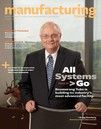The New Generation Gap
 When my wife, Sandra, and I recently interviewed candidates for staff positions in the undergraduate residence we oversee at Harvard, she referred to someone as “in his 50’s, our age.” I shook my head, instinctively warding off the association, then recognized the accuracy of her reference. “Right,” I muttered. Our candidate, a 30-something who had worked in the Clinton White House, smiled knowingly. His smile felt sympathetic, but it said to me: “baby boomers will go to their collective grave believing they’re still fresh out of college.”
When my wife, Sandra, and I recently interviewed candidates for staff positions in the undergraduate residence we oversee at Harvard, she referred to someone as “in his 50’s, our age.” I shook my head, instinctively warding off the association, then recognized the accuracy of her reference. “Right,” I muttered. Our candidate, a 30-something who had worked in the Clinton White House, smiled knowingly. His smile felt sympathetic, but it said to me: “baby boomers will go to their collective grave believing they’re still fresh out of college.”
Former President Clinton derives much of his charm from this surety, and our generation has used it to construct a different dynamic with its offspring from the one it experienced with its parents. The New York Times columnist and public television commentator David Brooks codified it perhaps best in the title of an essay in the Atlantic Monthly in April 2001: “The Organization Kid.” Among his sample population at Princeton, Brooks saw little of the teen rebellion we knew in the late ‘60’s; we like our kids, they like us, and they will rely on our ways to get them to their goals, more often than not determined by us.
Experience as parents, administrators and educators tell us that this assessment is accurate. It brings with it a downside, though, in that Brooks suspects our kids have no character. This is a serious charge: character matters, because it implies the ability to distinguish right from wrong, and act accordingly. It may be innate, which absolves parents of any responsibility to fix the problem (though they may still feel guilt), but raises evolutionary questions—a characterfree generation? It may also be environmental, in which case we might conclude that we weren’t listening closely enough in 1970 when Crosby, Stills, Nash and Young sang “Teach your children well.”
Whether character stems from nature or nurture, keeping the coming generations child-like, if not childish, may have real social consequences. I recently spent 10 days in Italy, working with entrepreneurs, young executives and academics, again mostly in their 30’s. They were articulate, accomplished and fully engaged in their public and private lives; a number of them had American MBA’s and experience with U.S. consultancies and I-banks. Hard-working and cosmopolitan, they were eager to take time out of their busy schedules to talk about leadership and values, and determined to take something away with them from our sessions together.
I took away, more than anything else, their concern that they were stuck in the ante-rooms of power, placed on hold while the “gerontocracy” of Italian society exercises its prerogatives and makes the decisions that keep the country running—or not, depending on your source. Though my partners in these conversations seemed to me mostly to have beaten the odds, they saw themselves merely as the exception that proves the rule: the younger generation lives at home through university and beyond, and they are thought to be doing well if they reach a position of executive authority by their early 40’s.
The generation gap that my young Italians identified differs in one significant way from the current American scene: they see the main obstacle to their success in the generation born before World War II, not the generation for which Bill Clinton and President George W. Bush, both 60, represent the leading edge. Former Secretary of Defense Donald Rumsfeld may have wanted to flag that age difference, not just the new nation-state members of NATO, when he made his instantly infamous reference in 2003 to “old Europe”. Curiously, Rumsfeld himself belongs to the pre-war generation, a fact that served him well when he became the youngest Secretary of Defense in American history under President Gerald Ford, but apparently less so in the new century.
Does either of these political constellations presage anything for business practice? The overlap of politics and business is a matter of record, in the U.S., Italy and everywhere else around the globe: it’s about power, and the creation of wealth that underpins power; so if boomer fantasies of eternal youth continue, the U.S. could find itself in both arenas with a new generation gap, Italian-style. The prospect is not all grim: local observers proudly note Italy’s long history of artisanal skills and a focus on quality that have not fallen away. They argue for the vitality of a small-to-medium and family-business-oriented culture (some of the latter having grown quite large, and public— think Agnelli or Benetton) that keeps Italian products desirable and viable in the global marketplace, and they emphasize a quality of life that, while laid over a chaotic political scene, uncertain economy, and changing demographics, bespeaks strong traditions and an enlightened social awareness.
Due perhaps to our relatively short national history, we have never quite reached that level of civilization. Americans seem forever to re-script themselves: in our relative epochal rawness, but also because of such realities as the ebb and flow of immigration, “we” are always somebody new. In the past, our shifting reality has invited push-back from the teens and 20 and 30-somethings, and permitted an entrepreneurial culture that makes rebellion constructive. Still, if we take Brooks’ “organization” diagnosis seriously, we 40 and 50-somethings—once the quintessential push-back generation—will need to mitigate our sense of our own inevitability (call it finality?) and share the wealth, and the power, but even more, a sense of duty to our lineage that we don’t quite own yet.
A word now much in vogue, sustainability, applies to this looming generational impasse. It’s not just about the environment, it’s about a culture and the values it encompasses: for all of our eco-tourism, we are notoriously spend-thrift and don’t really believe in scarcity. In the business arena, we do believe in the discovery and application of new technologies, the progress of science and the wealth-generating power of the market.
Ours is a wonderful optimism, but it will persist only if we temper it with a grasp of our own transience, and others’ presence—our neighbors, to be sure; the faceless, nameless crowd to which we outsource so many of our jobs; and finally, our children, agents in their own right and fresher now than we. That, too, is a value. The song got it right.







